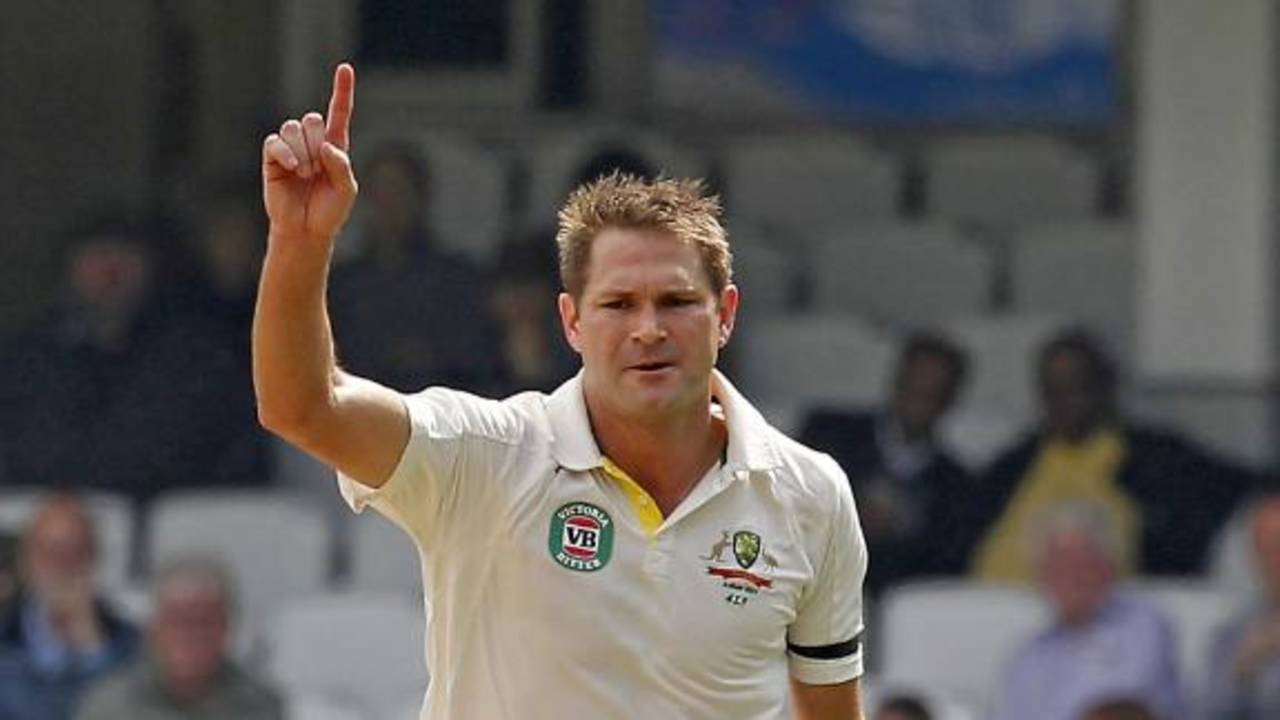Ryan Harris, Australia's MVP
His ageing body might not be the most reliable, but there is no denying that Ryan Harris remains one of the most important cogs in this Australian team
Brydon Coverdale
Dec 31, 2014, 4:35 AM
Ryan Harris has gone under the knife more often than a loaf of bread, had his use-by date examined as often as one too. But in the year that he turned 35, Harris topped Australia's bowling averages. He started with a Man-of-the-Match performance in Sydney in January and finished with another in Melbourne. Australia didn't quite manage to win at the MCG in spite of Harris, not because of him.
He took six wickets for the match, and scored 95 runs across both innings. He entertained the crowd in the first innings with his highest Test score of 74, and disappointed them only by not going on to a maiden century. As Australia sought 10 wickets in India's chase, Harris began with a wicket in his first over of the innings, and then claimed another in the first over after tea. He makes things happen when a game threatens to stagnate.
It is why Harris is the winningest player in Australia's team. Australia have won 61% of the 26 Tests Harris has played. By comparison, they have won 55% of Michael Clarke's Tests, 54% of David Warner's, 53% of Mitchell Johnson's, 52% of Nathan Lyon's, 51% of Brad Haddin's, 49% of Shane Watson's, 47% of Chris Rogers', 46% of Peter Siddle's and only 44% of Steven Smith's.
At the MCG on Tuesday night, Harris was asked how his body had held up - he had missed the Brisbane Test due to a slight quadriceps strain and returned in Melbourne. "I'm okay," Harris said, "I'm playing in Sydney if I ... well, I'm playing in Sydney."
Typically, Australian players don't pre-empt the selectors, and Harris' assertion brought loud and genuine laughs from his captain Steven Smith, sitting next to him at the press conference. "If I get picked," Harris then said, remembering the protocol. He need not have bothered. When fit, his name must be close to the first written on Australia's team sheet.
He is a no-nonsense cricketer who rushes in to bowl, then bustles quickly back to his mark like he's late for an appointment. Don't blame Harris for slow over rates. He delivers the ball with just the right mixture of speed and movement, nipping it around just enough to catch an edge, reverse-swinging it if the conditions suit.
The MCG drop-in pitch was offering little on the fifth day against India, but when Harris had the ball in his hand it always seemed like Australia had a chance. He had bowled them to victory in similar circumstances in the dying stages of the Cape Town Test in March. He knew that he was heading home for knee surgery, and observers wondered about his Test future.
Observers should have known better. This was a man who had two knee operations in the winter of 2009, yet made his Test debut less than a year later at the age of 30. His knee was already hanging by a thread, his dynamic bowling action putting stress through all parts of his body. He is a series-by-series prospect and has missed more Tests than he has played, but nearly five years after his debut is a hugely important player when fit.
His knack for taking wickets is extraordinary. Thirty-six men have taken at least 100 Test wickets for Australia, but none has struck with such regularity as Harris. His strike-rate of a wicket every 49.2 balls is the best of any of those players. Better than Glenn McGrath, Dennis Lillee, Shane Warne, better than the 19th-century champion Charlie Turner, who had the assistance of uncovered pitches.
But Harris' value is not just in his own wicket-taking. Mitchell Johnson is at his best when the pressure is not all on him, when there is a dependable bowler at the other end, both drying up the runs and claiming wickets. In Tests involving Harris, Johnson has taken 96 wickets at 20.72. In Tests that Harris has missed since his 2010 debut, Johnson has taken 44 wickets at 41.36. It is a staggering difference. Harris makes Johnson a better bowler, Australia a better team.
As Australia close 2014 with another Man-of-the-Match effort from Harris, minds will wander to the coming year, and how much of a role Harris will play. The Ashes in England is the major goal, and last year he was Australia's Player of the Series in their lost Ashes campaign there. But there is also a World Cup approaching, and though Harris has not played an ODI for nearly three years he would be a valuable addition to the squad.
At 35, some fast bowlers are just going, but Harris is still going hard every time he plays. He never knows when the journey will end, but even now it has gone on longer than anyone anticipated. Chris Rogers will probably retire after the Ashes, and Brad Haddin too. Ryan Harris? Maybe, maybe not. He has confounded so many expectations already, why not another?
Brydon Coverdale is an assistant editor at ESPNcricinfo. @brydoncoverdale
